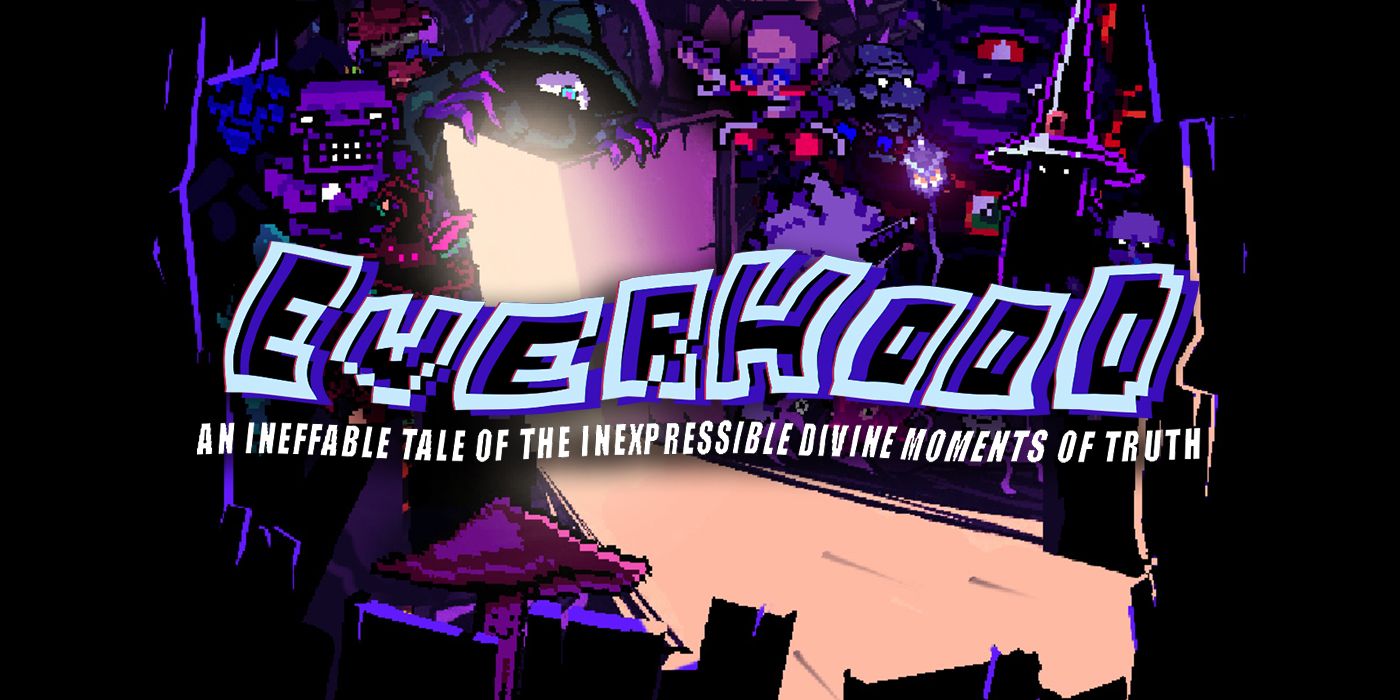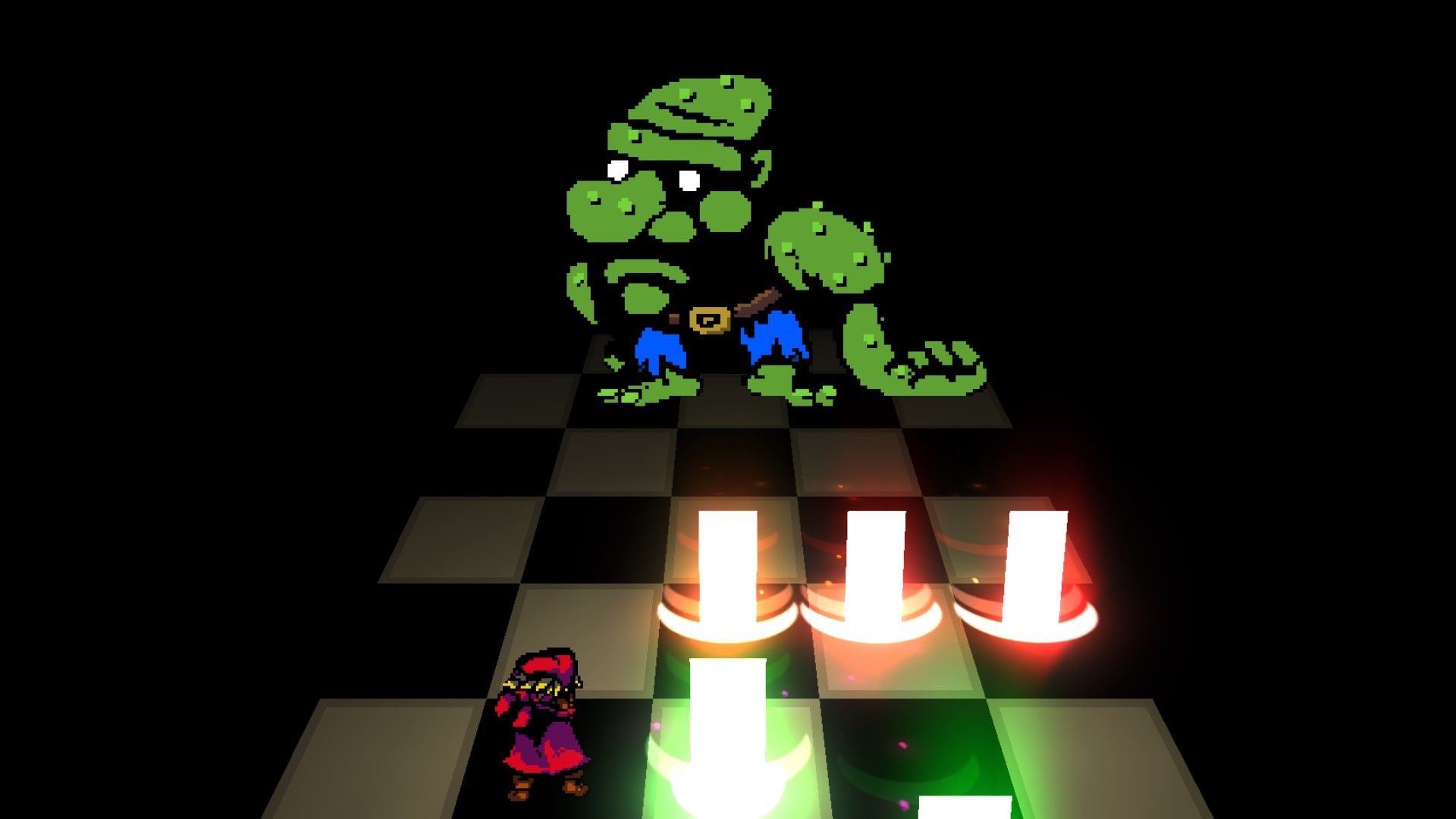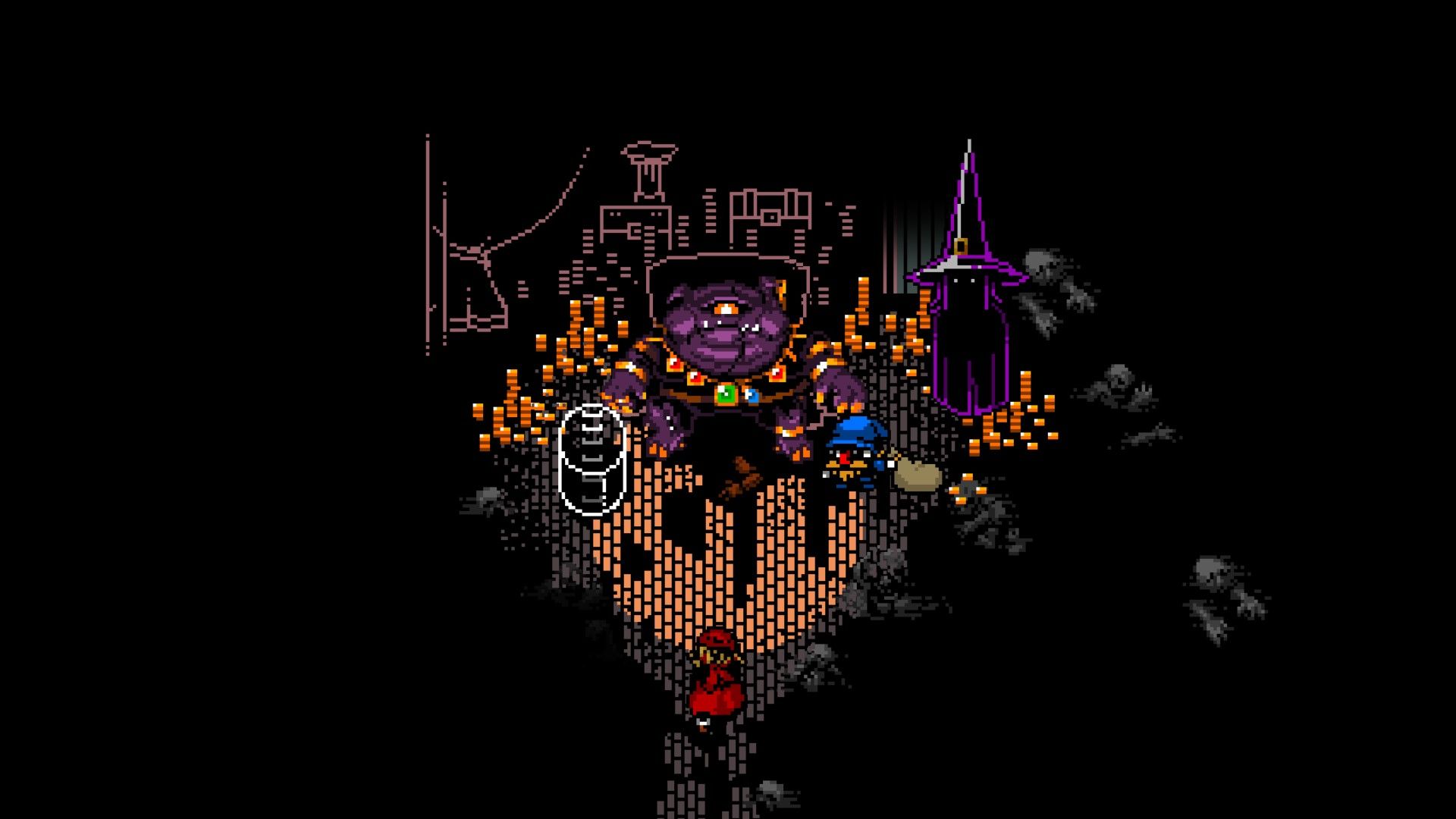Although focus often turns to graphical quality or gameplay intricacies, music can do so much for a video game. Whether the memorable soundtrack of Tony Hawk's Pro Skater or the era-matching score to Cuphead, music can both set the tone of a game and play an important part in the overall experience. Everhood, from developers Chris Nordgren and Jordi Roca, understands this perfectly.
Everhood is an adventure RPG, but it replaces the usual real time or turn-based combat with a music-based rhythm system. The player takes on the role of Red, a wooden puppet mage whose arm has been stolen. The player must travel around the strange realm of Everhood, meeting its quirky inhabitants and searching for a way to get their arm back. However, things are not as they first appear.
Around Everhood, Red will find some of its inhabitants aren't as friendly as others, causing a jump into rhythm-based dodge 'em up combat sections that cross Guitar Hero with Crypt of the Necrodancer-inspired gameplay. Everhood's soundtrack is incredible, crossing a variety of genres and each with a slight chiptune vibe that helps create a cohesive feel. It also ties well into the game's progression, with the music becoming more complex as the game gets more challenging.
These battles are a lot of fun, and all are short enough to avoid wearing out their welcome. The player must avoid waves of attacks based on the music of the enemy, either by jumping, dodging, or deflecting notes back at their opponent. With the attacks tying into the music, perhaps as a percussion beat or a bass note, it's essentially what would happen if a character was stuck at the bottom of a level screen from Rock Band or Dance Dance Revolution and needed to avoid getting hit.
There's also variety to be found here and there. The gameplay is always changing, even in minor ways like the normally vertical attacks zig-zagging across the screen. At certain moments it goes even further, with the player needing to hop from side to side of a platform to keep a mine cart moving while still avoiding attacks, go through an in-game Dungeons & Dragons campaign, or take part in a kart race akin to arcade classics like Pole Position.
That's not the only cue that Everhood takes from games of years gone by, either. The game's art style mixes predominantly black backgrounds with striking color design, feeling reminiscent of classic home computer consoles like the Commodore or ZX Spectrum, albeit with a higher level of quality and occasional blending of 3D models to good effect. The game prominently displays its warning of flashing images, which should be of note for people who may be sensitive to such, although there are solid accessibility options available that allow this element to be removed from play unlike other recent games like PUSS!.
Some might note a visual similarity to indie darling Undertale, but the graphical style is not the only place where the games overlap. Everhood is also tonally close to Toby Fox's iconic title, with an odd world to traverse and a cast of utterly charming characters to talk with; even Everhood's save points have a voice of their own. Then, without going into spoilers, things get turned upside down.
A single playthrough of Everhood doesn’t take very long. However, it's a game that needs more than one run to truly get to grips with its story, with some clever subversions and neat gameplay mix-ups that are still refreshing the second time around. It also includes more than one ending, doing a lot more than just tweaking minor plot points, so it's more than worth exploring.
All in all, Everhood is a darling of an indie game. It certainly lends more than a quick footnote to Undertale, both in terms of its atmosphere and its themes and storytelling. That’s not necessarily a bad thing, however, and its music-based action is an absolute wonder.
Everhood releases today, 4 March 2021, for PC and Nintendo Switch. Screen Rant was provided with a PC download code for the purposes of this review.



